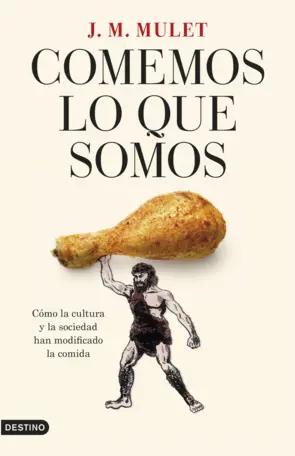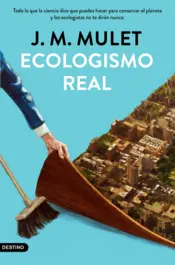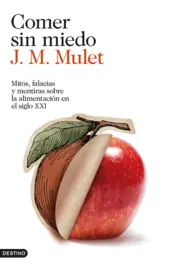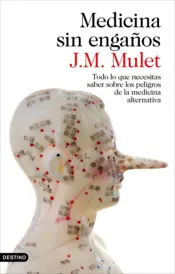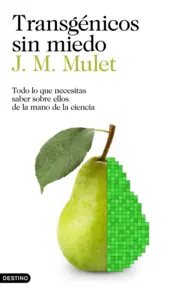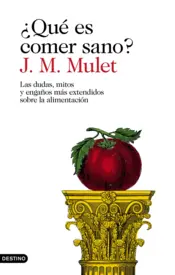We Eat What We Are
Publishing date:22 february 2023
Categories:Non-Fiction
Synopsis:
How culture and society have modified food
From the marrow of the Mammoth to fast food.
How culture and society have modified food.
“We are what we eat,” prays the popular saying to express that the staple ground of our society is our diet. Nonetheless, beyond indispensable for our survival, is also the reflection of our history and millenary culture. Therefore, there is a backstory and a tradition behind every meal, and each flavour represents a very unique moment in humanity. Our diet as a species is the result of all this, hence that is why “we eat what we are”, claims the popular scientist J.M.Mulet.
Taking off from a controversial and entirely innovative perspective on the relationship between being and eating, Mulet embarks on his greatest, most ambitious project to date: to illustrate the history of food from the origins of mankind to our present day, to portray how human beings have related to food over the centuries, and therefore, how we have come to develop the food and diet culture that defines us.
Did You Know:
- Beetroot was more useful to put an end to slavery than Abraham Lincoln.
- The Sumerians are to blame for churros and eggs being sold by the dozen.
- The first gazpacho recipe ever was published in México? Or that the first paella recipe to be printed was in French? As for stew, guess what, there was no recipe printed until the 20th century.
- If pizza is today a global, massively consumed food, it is thanks to the battle of Monte Cassino during the Second World War.
- Regarding the word restaurant, the Bible is accountable for its first mention.
- Not to talk about the French Revolution, responsible for changing the recipe for moussaka, lasagne and spaghetti carbonara.
- Many traditional French recipes, like duck à l’orange originally came from the Italian province of Tuscany
- Chicken went untouched until the Roman Empire. Until then, it was a sacred animal.
- We have to thank the Spanish Inquisition for many of today’s recipes.
- Shakespeare and Cervantes only mentioned caviar once in both their extensive works.
Technical Data
| Technical data | Publish date: 22 february 2023 ISBN: 978-84-233-6277-6 Pages: 624 Imprint: Ediciones Destino |
|---|---|
| Rights sold | Say Kitap (Turkey). |

